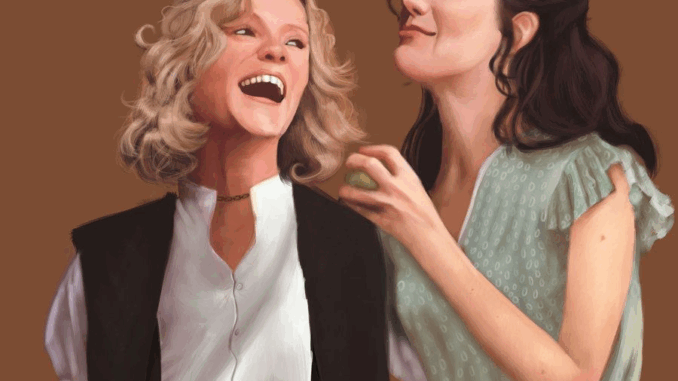
Though often celebrated for its female friendships and emotional depth, Fried Green Tomatoes is also a deeply meditative film about time, memory, and the way communities are remembered—or forgotten. Through the lens of Whistle Stop, Alabama, the movie invites us to ask: What does it mean for a town to disappear? And what do we keep alive when we tell its story?
Whistle Stop: A Character in Itself
Whistle Stop is more than just the setting of the film’s flashbacks — it is a living character, one that evolves with the people who inhabit it.
In its heyday, the town is full of warmth, chaos, and resilience. The Whistle Stop Café is the heart of it — not just a restaurant, but a community center, a safe haven, and a battleground for compassion in the face of racism, poverty, and hardship.
But in the present-day storyline, the town is abandoned. The café is boarded up, the train no longer runs, and even the cemetery is overgrown. The disappearance of Whistle Stop reflects the erosion of memory — not just of places, but of values, relationships, and shared histories.
Collective Memory as Resistance

In telling Evelyn the story of Idgie, Ruth, Big George, and the café, Ninny is performing a radical act of preservation.
Whereas history books might forget the small Southern towns, and certainly the women and Black workers within them, oral storytelling keeps them alive in vivid, emotional detail.
Ninny resists cultural erasure by turning collective memory into personal experience. Through her words, Whistle Stop is rebuilt in Evelyn’s mind — train tracks restored, coffee brewing again, laughter echoing through the café.
This act of remembrance defies time’s decay. It becomes a quiet, potent rebellion against the idea that the past should be discarded.
Nostalgia Without Illusion
What makes Fried Green Tomatoes special is that it doesn’t present the past through rose-colored glasses. Yes, there is comfort in the memory — in the friendships, the food, the familiar rhythms of a tight-knit town — but there is also:
-
Poverty, made visible through families struggling in the Depression.
-
Racism, confronted through Big George’s quiet endurance and Sipsey’s defiance.
-
Grief, embodied in Ruth’s illness and the many lost before their time.
Whistle Stop is remembered with affection, but also with honesty. This balance is rare — and it’s what gives the film its emotional authenticity.
The Cyclical Nature of Time
The film’s structure — jumping between 1920s–30s and 1980s — creates a loop of emotional resonance. Just as Evelyn learns from the past, viewers feel the echoes between generations:
-
The loneliness of Ninny in the nursing home mirrors the isolation Ruth felt in her marriage.
-
The rage Evelyn releases in the supermarket crash parallels Idgie’s lifelong defiance of rules.
-
The loss of Whistle Stop as a town is healed by its resurrection in memory.
The past and present are not separate — they inform, reflect, and shape each other. And in doing so, they allow healing.
Memory as Home
By the end of the film, it’s clear that Whistle Stop still exists — not physically, but in the hearts of those who remember it.
Evelyn is no longer the same. Her identity has been re-rooted in a world she never lived in but somehow knows. She doesn’t just remember Whistle Stop; she belongs to it now.
Likewise, we as viewers feel connected to something real and intimate, as if we, too, have walked those dusty streets, eaten fried green tomatoes on the porch, and watched trains disappear into the Southern dusk.
We Are What We Remember
Fried Green Tomatoes is a reminder that stories preserve not just facts, but feelings, values, and connections.
When a town like Whistle Stop fades from the map, the only way to bring it back is to tell its story — again and again, like Ninny does.
In doing so, we resurrect not only a place, but a way of being: where community mattered, where love was fierce and unconventional, and where the smallest acts — serving a meal, telling a joke, holding a friend’s hand — were enough to transform time itself.
